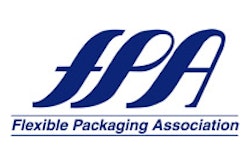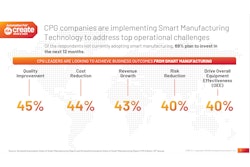This content was written and submitted by the supplier. It has only been modified to comply with this publication’s space and style.
But as the technology is rolled out aggressively at more and more hospitals, questions persist concerning the impact RFID might have on medical devices like pacemakers.
To date, no standardized or repeatable methodology exists for manufacturers of RFID equipment or medical devices to use to assess potential issues with electromagnetic interference. Researchers at the Georgia Tech Research Institute (GTRI) hope to solve that problem.
In August, GTRI started a project designed to develop testing protocols for RFID technology in hospital environments. Ralph Herkert, director of GTRI's Medical Device Test Center, hopes to have two sets of standardized protocols published by early next year.
“We see six months as a good target for having [protocols] out there,” says Herkert, who will meet with the U.S. Food & Drug Adminstration and other groups in November to present an update on the research. “One of the big drivers for all this is the increased use of RFID technology in the medical environment.”
Eventually, the test protocols developed by GTRI will be submitted to the FDA for approval. Then, a worldwide certification program will be launched.
The healthcare sector is turning to RFID and technologies like sensors and RTLS in a big way as they seek to increase efficiencies and squeeze unnecessary costs out of the healthcare system. Hospitals report big savings from RFID-based asset tracking systems to keep tabs on expensive items like wheelchairs and catheter equipment. In addition, the technology is being used to track and monitor hospital staff and patients.
In February, the Disney Family Cancer Center will open in California, touting RFID as a key technology to improve the patient experience. As reported in RFID 24-7 last month, RFID will be used to help check in patients, and also to help hospital staff to assure that pre-determined ambiances like room temperature, lighting, and music selections are in place when patients arrive.
The testing protocol research is being driven by AIM Global, a trade association for auto ID and mobility technology solution providers. AIM has also asked MET Laboratories to participate. That group regularly provides lab testing and certification services for medical device manufacturers. Aside from pacemakers, the research will concentrate on how RFID impacts other implantable devices like cardioverter defibrillators, neurostimulators, implantable infusion pumps and cardiac monitors.
Herkert says it’s likely that two sets of protocols will emerge, one for implantable devices and another for hospital equipment like heart monitors, wheel chairs and hospital beds that are being tagged to provide visibility from asset tracking.
"A comprehensive set of test protocols, which are sufficiently precise to permit repeatable results, is required to understand if there is an interaction between various types of RFID systems and active implantable medical devices, electronic medical equipment, in vitro diagnostic equipment and biologics,” Craig K. Harmon, president and CEO of Q.E.D. Systems and chairman of AIM Global's RFID Experts Group, said in a press release. “ Only after the protocols are developed will we be able to investigate the cause of any interactions, the result of any interactions, and ways manufacturers might eliminate or mitigate interactions.”
Herkert says that his research staff will evaluate and determine the best method for measuring whether interference takes place as a result of RFID emission in both active and passive RFID technologies covering the spectrum from low-frequency to ultra high-frequency.
The researchers will test whether RF-emitting devices cause any negative effects on the medical devices, and under what conditions these effects might occur. Testing will also determine whether specific medical devices are particularly susceptible to certain radio frequency identification characteristics and if any corrective actions can be taken to mitigate such susceptibility.
Medical device testing is not new for GTRI, which established its Medical Device Test Center more than 14 years ago. The facility was created to enable manufacturers of implantable cardiac pacemakers and defibrillators to work with providers of electronic article surveillance (EAS) systems, used by retailers, libraries and other establishments to prevent theft and track inventory. Initially, the center helped manufacturers improve compatibility between implantable medical devices and EAS systems that radiate electromagnetic energy. In 2006, GTRI expanded its operations and facilities to test new types of security and logistical systems (SLS), including RFID.
According to the GTRI web site, in order to test the effects of RFID on medical devices, the researchers simulate real-world conditions by placing a medical device in a tank of saline solution that simulates the electrical characteristics of body tissue and fluid. The medical device is then exposed to different RFID technologies. Several tests are performed with the device placed in different orientations to represent how people typically interact with the emissions.
"The testing procedure for RFID systems will likely be similar to the EAS procedure, but there are a few more challenges with RFID because a person doesn't always pass through a portal," says Herkert. “And in a hospital setting, you don’t always know where the antennas will be installed.”

























